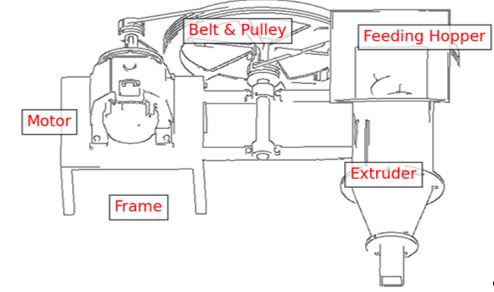Development and Testing of Compressed Organic Fuel Logs: A Sustainable Cooking Alternative
Keywords:
Organic Waste, Biomass Fuel, Log-Making Machinery, Environmental Sustainability, Cow DungAbstract
Organic waste materials such as bovine excrement and agricultural residues are increasingly being recognized as sustainable fuel sources. However, conventional combustion methods contribute significantly to air pollution. This study explores the potential of log-making machinery to compress organic materials into dense logs, which combust more efficiently and produce lower emissions. The logs were produced from a mixture of animal excrement and agricultural waste using a specialized log-making apparatus, and their physical properties and performance were evaluated across 11 different log compositions (LOG-1–LOG-11). The key parameters assessed included shrinkage diameter, weight reduction, length reduction, moisture content, and bulk density. Performance metrics such as ignition time, burning rate, and ash content were also measured. The results indicated that the diameter shrinkage during drying ranged from 10% to 35%, whereas the mass loss varied between 21% and 38%. The moisture content ranged from 30% to 52%, with bulk density values between 1230 and 1540 kg/m³. The ignition time was recorded at 46 to 52 seconds, and the burning rate varied from 0.07 to 0.012 kg/min, with Log-4 exhibiting the highest burning rate. Notably, Log-8 demonstrated a lower ash content than Log-9, suggesting a greater fuel efficiency. These findings highlight the versatility of balanced compositions such as LOG-8 for various applications, contributing to more efficient agricultural practices and environmental sustainability.


















